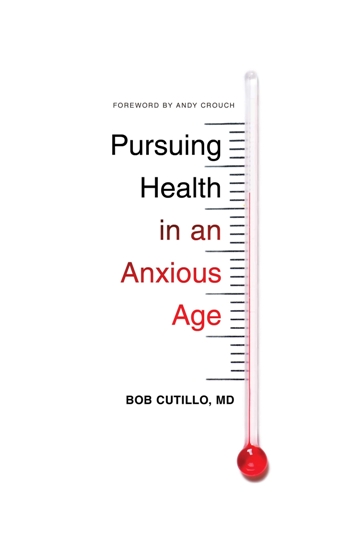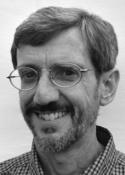Bob Cutillo: Pursuing Health in an Anxious Age
 Bob Cutillo, Pursuing Health in an Anxious Age (Wheaton, IL: Crossway, 2016), 196 pages, ISBN 9781433551109.
Bob Cutillo, Pursuing Health in an Anxious Age (Wheaton, IL: Crossway, 2016), 196 pages, ISBN 9781433551109.
Advances in healthcare have led to increase in worry over one’s own well-being, wasteful spending, and a lack of concern for the well-being of others in our community. Indeed, we have come to view health as a commodity to possess and control. Commodities run out; thus, the fear of loss causes us to focus only on what we have and can maintain, rather than on ensuring everyone has enough. Cutillo urges us to view health and healthcare from the margins, with those individuals who are often unable to afford and thus acquire healthcare. By so doing, we can resist the flow of healthcare as only a multi-billion-dollar industry and pursue justice in the distribution of healthcare at the local level. Moreover, instead of keeping medicine and faith apart, Cutillo argues for a complementary relationship, using Christianity as a means “to explore how we pursue health and practice healthcare” (p. 16). Indeed, this is the purpose of the book.
The book is divided into four parts: The first part discusses how individuals have come to see health as something to control; while the second part suggests that medics need a new way of seeing the patient. Part three addresses the fear of death and how we can view dying differently, and the final section offers a way forward to viewing healthcare as a gift that should be shared within the wider community in light of the intersection of medicine and faith.
Unrealistic Expectations
Should we view health as a commodity to possess and control?

Bob Cutillo
Cutillo shows how even from the Genesis account, we have the proclivity to want to control our circumstances. Although God has declared all creation good, Adam and Eve sought more—the knowledge of good and evil. Since then, humans have had to make decisions based on what they understand of good and bad. We don’t want what is bad, and because society deems sickness and disease as bad, we try to control outcomes so that we can avoid them at all costs. In turn, we become anxious about those outcomes. Cutillo points out that because God is active in the world, he “is able to incorporate even the things we assume bad into a greater plan [that can] change the way we pursue health and face sickness” (p. 68). Thus, we don’t have to waste our energies in worrying about our health but focus on living.
Disembodiment
Medical students are trained to see the body in parts, but by breaking the whole into parts, they can lose sight of the whole altogether. When healthcare practitioners dissect the human patient into discrete parts, they no longer see the needs of the human before them, only their disease. Moreover, the propensity to tick the heuristic box of symptoms to diagnose disease avoids the altogether larger issue of how the individual is in other contexts of being and disallows the uniqueness of individuals to assist in both diagnosis and remedy. The result is that we separate the body from the soul.
Category: Living the Faith, Winter 2019


